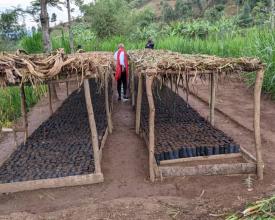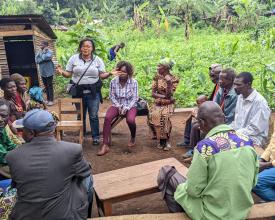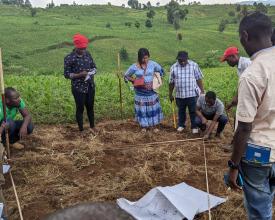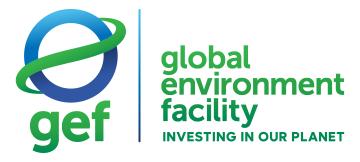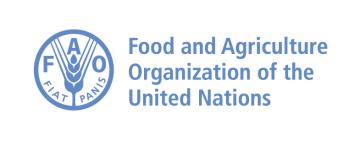
Establishing an FLR-Friendly Policy Framework in South Kivu, Democratic Republic of Congo
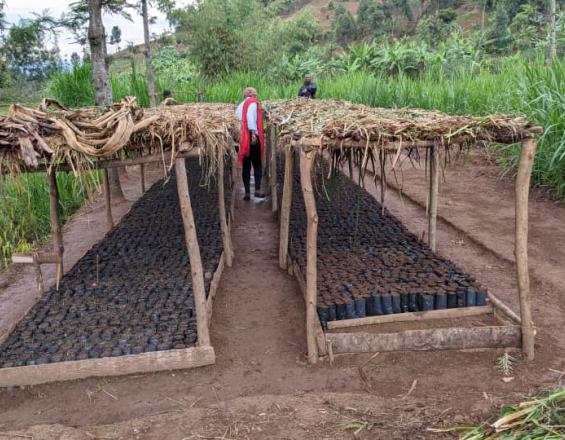
The Restoration Initiative (TRI) in the Democratic Republic of Congo (DRC) has worked to put in place policy frameworks supportive of forest and landscape restoration (FLR) in the pilot province of South Kivu. To do this, the team facilitated the development of the Provincial Strategy for the Restoration of Forests and Landscapes in South Kivu, the drafting of two legal documents, one on bushfire management and one promoting FLR, to support the implementation of the strategy, and the integration of FLR measures in the local development plans of the Kabre and Ngweshe chiefdoms. Together, the provincial FLR strategy, supporting legal documents, and FLR-supporting local development plans will help coordinate various FLR projects and actions and help the local upscaling and management of restoration on the ground.
TRI is a GEF-funded project.
Context
Challenges addressed
The major challenges facing TRI DRC include political will and capacity. The validation process is often the most time-consuming and presents the largest roadblock to the implementation of FLR policy. This is because the various politicians and government agencies not only need to be convinced that the policies are worth pursuing, but also agree on all their aspects. Garnering enough enthusiastic political will, therefore can present a major challenge. In addition to enough political will, capacity presents a challenge to establishing FLR-supportive policies. Local coordinators and provincial bodies need to have the financial, political, and administrative capacity to push policies through the approval process as well through their implementation. Thus, ensuring there is enough capacity for successful policy adoption and implementation is vital for the restoration agenda.
Location
Process
Summary of the process
With a newly elaborated Provincial Strategy for the Restoration of Forest and Landscapes in South Kivu, a legal document on bushfires and on the promotion of FLR, and local development plans that incorporate these policies and FLR in general, TRI has helped to put in place a policy framework that is supportive of FLR in South Kivu, DRC. The provincial strategy acts the FLR policy pillar, by outlining actions and regulations around FLR in South Kivu. The legal documents, then, enhance the strategy by providing specific measures around bushfires and the promotion of FLR. Ultimately, the local development plans incorporate FLR and the greater subnational policies to ensure the uptake of FLR projects and to help upscale restoration on the ground. As a whole, the policies strengthen FLR in South Kivu and provide a guide for other provinces in DRC to follow. This will not only help South Kivu achieve its restoration goals, but will also help the country as a whole pursue it restoration targets and commitments.
Building Blocks
Developing a Provincial Forest Restoration Strategy in South Kivu
TRI DRC assisted the elaboration of the Provincial Strategy for the Restoration of Forest and Landscapes in South Kivu, which outlines the priorities and actions to be taken for FLR, including best practices on the protection of watershed, sustainable land management practices for subsistence crops, promotion of fodder production for livestock, and classification of potential restoration options depending on geographic zone. To help elaborate the strategy, TRI DRC brought together the national work group, made up of the various stakeholders such as national ministries, provincial coordination, and local partners, to identify the gaps and bottlenecks for restoration and integrate them into recommendations. TRI DRC also provided recommendations on terms of methodology and approach as well as technical input. By April, 2022, the strategy received local and regional validation as well as technical validation from members of the national technical working group. The strategy, as of October 2023, awaits validation from the provincial assembly, before it can begin implementation.
Enabling factors
TRI DRC was able to facilitate the development of the Provincial Strategy for the Restoration of Forest and Landscapes in South Kivu because of the enthusiasm and willingness of the various stakeholders to participate in discussions and provide recommendations for the strategy. TRI also used data from the participatory ROAM assessments to ensure its recommendations for the strategy included local considerations and priorities. These factors allowed for the strategy to consider all the recommendations and apply them to the local context.
Lesson learned
Through the process of working to develop the Provincial Strategy for the Restoration of Forest and Landscapes in South Kivu, TRI DRC learned how to best convene the various stakeholders and members of the national technical working group as well what recommendations the strategy needed to best address the restoration needs of local communities. By convening the working group and facilitating discussions over the major topics the strategy would cover, TRI DRC was able to develop best practices for bringing together stakeholders and grow its understanding of the different relationships between the actors and where everyone’s expertise lies. Additionally, by conducting participatory ROAM assessments, which were used to identify local restoration priorities, TRI DRC gained insight into how the strategy could best implement restoration within the local context.
Creating Legal Documents Supporting FLR Strategy in South Kivu
To further strengthen DRC’s legal and regulatory framework to ensure it is supportive of FLR, TRI DRC worked to develop two legal documents that will work with the provincial strategy to facilitate FLR in South Kivu. One of the documents outlines the management of bushfires, including when and how they should be dealt be with, while the other document focused on sustainable land management and the promotion of FLR. To help produce the two legal documents, TRI DRC worked with Rights Empower, an organization holding expertise on legal affairs, provided technical input to the Ministry of Environment and Sustainable Development, which created the drafts. In a similar timeline to the provincial strategy, the two legal documents have received technical validation and now waits provincial approval and a signature from the governor. To ensure these documents move through, the Ministry of Environment and Sustainable Development has confirmed it will provide funding to guide the approval process.
Enabling factors
TRI DRC was able to provide technical input and assist the development of the two legal documents because of the help and legal expertise from Rights Empower as well as the commitment from the Ministry of Environment and Sustainable Development. Working with an organization with legal expertise, TRI DRC was better able to provide input on the documents and push from the Ministry will help ensure the documents are enacted.
Lesson learned
Working to develop the two legal documents to enhance the FLR regulatory landscape, TRI DRC learned the ways in which supporting policies can further facilitate the uptake of FLR and aid the implementation of major policies such as the provincial strategy. Having supporting legal documents has also shown that while major strategies can be comprehensive and work to address any gaps, additional legal structures will further outline priority actions and aid the implementation of FLR policies on the ground. Additionally, working with Rights Empower, TRI DRC also gained insight into the legal aspects of FLR policy and how legal documents can differ from overarching strategies and masterplans.
Establishing Local Development Plans Incorporating Restoration in South-West DRC
To further facilitate the implementation of FLR, TRI DRC worked to integrate major policies and restoration in general into the local development plans of the Kabre and Ngweshe Chiefdoms in South Kivu province. Though the local development plans were supported by GIZ without technical input from TRI DRC, the team successfully worked to add annexes to the plans that incorporate data received from the ROAM assessments and restoration caveats. Additionally, TRI DRC has also worked to integrate the Provincial Strategy for the Restoration of Forest and Landscapes in South Kivu as well as the two legal documents (one on bushfires and one on FLR) into the local development plans to help upscale restoration on the ground. These local development plans will be finalized at the end of September, 2023 and with the new inclusion of FLR, will be instrumental in the strengthening of FLR frameworks on the ground.
Enabling factors
TRI DRC was able to integrate the provincial strategy and legal documents as well as restoration in general into the local develop plans of Kabre and Ngweshe because of the team’s push to ensure that local policies further work to enhance and facilitate FLR and do not just leave these concepts at the regional or national level.
Lesson learned
Through TRI DRC’s push to integrate FLR into local development plans to help upscale restoration at the local level, the team learned valuable lessons in how broader restoration strategies and policies like the Provincial Strategy for the Restoration of Forest and Landscapes in South Kivu and the two legal documents can be incorporated at the local level to create a robust and cohesive FLR legal and regulatory structures. Additionally, TRI DRC gained insight into how restoration measures can be added to existing policies originally drafted without TRI DRC’s input. Although the plans were originally created by GIZ, with push from TRI DRC, they now promote restoration and sustainable land management in the two chiefdoms and provide for policy cohesion with wider-reaching subnational policies.
Impacts
The Provincial Strategy for the Restoration of Forests and Landscapes in South Kivu, legal document on bushfire management, legal document promoting FLR, and local development plans act as some of the major policy milestones that TRI team was able to accomplish. These milestones are significant because not only do they represent a major difference with previous practice in support of restoration, but will also have a triggering effect that will lead to FLR implementation. As the first provincial strategy in DRC, the South Kivu FLR strategy representing a significant change from previous a policy framework without subnational FLR governance to one that will promote FLR and allow for its management at the subnational level. The policies together will also likely result in the greater uptake of FLR-related projects, as there is now a legal framework for them to follow, as well as the pursual of other FLR policies in other provinces. Additionally, as the policies push FLR in South Kivu, they will also contribute to the final goals of restoration in DRC. With a legal framework outlining FLR and promoting the uptake of restoration projects, a greater number of hectares will ultimately be restored.
Beneficiaries
Local communities, such as indigenous peoples and local authorities, greatly benefit as the restoration policies provide an FLR framework supporting restoration projects that promote conservation and provide for job training and community involvement.
Sustainable Development Goals
Story
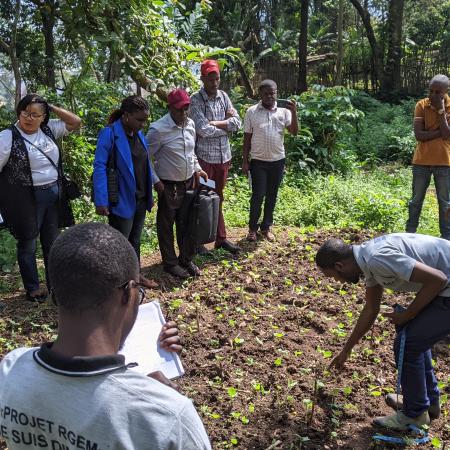
The TRI project in the Democratic Republic of the Congo is working to help address the environmental, economic and social challenges affecting natural resource management.
The caisse de résilience approach revolves around farming and pastoralist communities, connecting and integrating productive, financial and social activities, which involve technical services provided and carried out by NGOs, as well as rural community members. This approach is appropriate for the sustainable restoration of forests and landscapes and includes three pillars: 1) Dimitra Clubs; 2) Farmer Field School (FFS); and 3) Village Savings and Loan Association (VSLA).
The Dimitra Club pillar raises awareness and mobilizes communities and local authorities around environmental issues, including impacts and the need to implement restoration. Dimitra Clubs contribute to reawakening community dynamics around restoration and strengthen inclusive engagement, collective action and gender equality. The Dimitra Club pillar also helps identify common problems and challenges, with restoration as an entry point, enables communities to analyse and discuss these to find local solutions, and encourages them to apply these solutions using their resources.
The FFS pillar, otherwise known as Farmer Field and Life School pillar, is an education opportunity based on adult learning principles. It aims to build the capacity of producers on restoration opportunities through observation, action, experimentation and decision-making.The FFS follows a democratic system. Planning decisions and actions are made in teams, considering the ideas of all with the guidance of the facilitator. Such democratic processes led to the identification of three priority learning themes through the FFS approach: a) erosion control; b) agroforestry; and c) sustainable soil fertility management.
The pillar for VSLA or Association villageoise d’épargne et de crédit (AVEC) comprises a group of 15 to 30 people who save funds together, provide each other loans from said savings and develop income-generating activities. The added value of this approach includes awareness raising and collaboration among households within villages, strengthening social cohesion, improving the resilience of the affected people and residents combining forces to support the sustainable management of local resources. The VSLA pillar strengthens household economies and contributes to reducing the pressure on natural resources.

